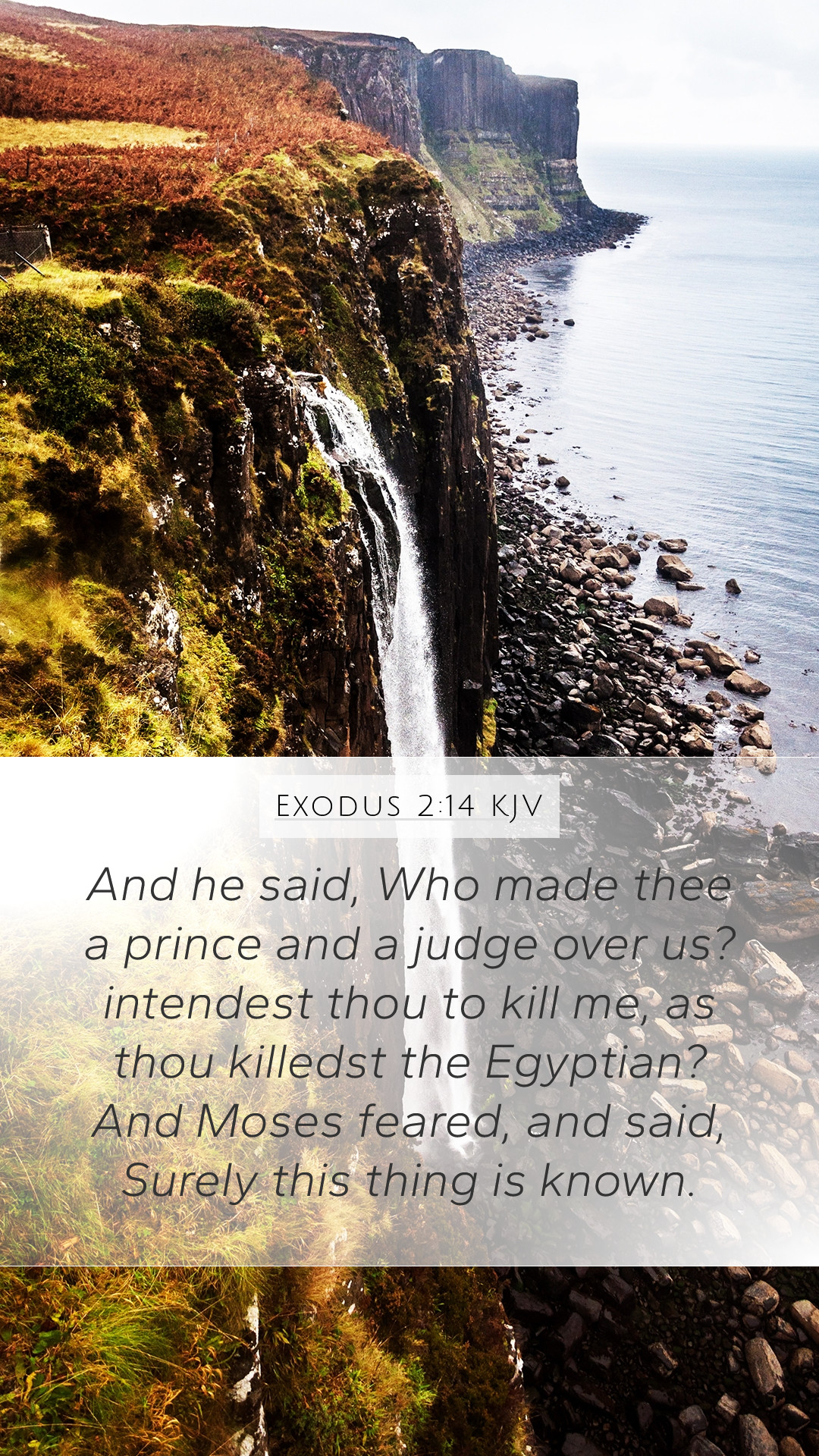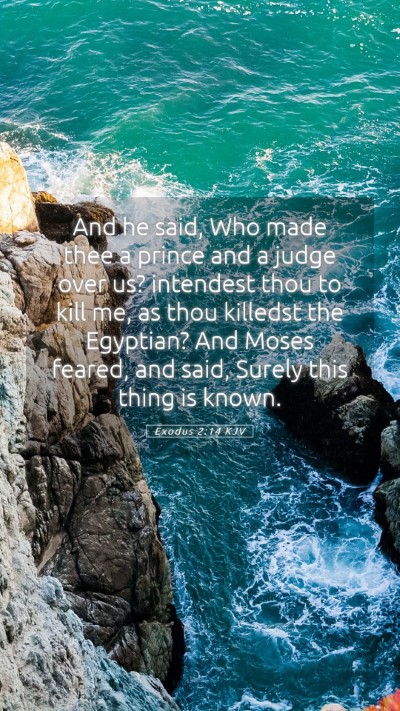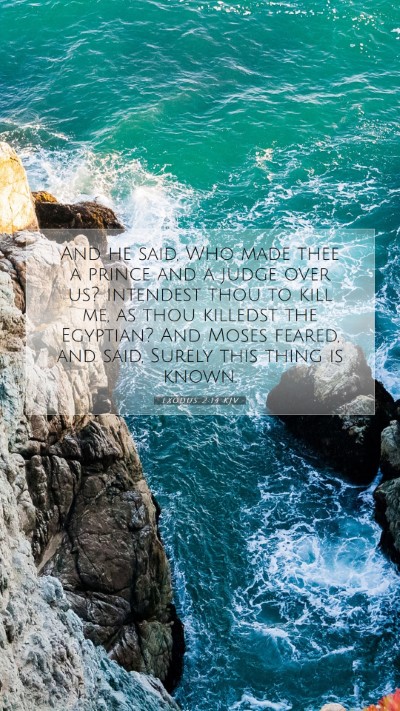Understanding Exodus 2:14
Bible Verse: Exodus 2:14
Verse Text: "And he said, Who made thee a prince and a judge over us? intendest thou to kill me, as thou killedst the Egyptian? And Moses feared, and said, Surely this thing is known." (Exodus 2:14, KJV)
Summary of Exodus 2:14 Meaning
This verse captures a pivotal moment in the life of Moses, detailing his realization of the consequences of his actions as he attempts to protect his fellow Hebrews. The fear and confrontation he experiences underscores the challenges faced by those who seek to act justly in a world of oppression.
Commentary Insights
-
Matthew Henry:
Henry notes that Moses' question reflects a challenge to authority and his struggle to assert his role among the Israelites. The query, "Who made thee a prince and a judge over us?" suggests a tension between Moses' identity as a Hebrew and his upbringing in Pharaoh's household. This moment signifies a turning point where Moses must acknowledge his responsibility and the weight of his actions.
-
Albert Barnes:
Barnes emphasizes the fear that consumed Moses after the question was posed. This fear stemmed from the realization that his actions were not hidden, and that his place in Egypt was precarious. Barnes interprets this as a moment of heightened awareness for Moses, leading to his retreat from Egypt and foreshadowing his eventual role in leading the Israelites from bondage.
-
Adam Clarke:
Clarke provides an examination of the implications of “this thing is known.” He argues that this knowledge implies Moses' identity and actions could not remain secret, thus linking the themes of justice and retribution. Clarke elucidates that this moment reveals the inner turmoil Moses faced as he grappled with his motivations and the reality of his people's suffering.
Key Themes in Exodus 2:14
-
Tension between Identity and Responsibility:
The verse highlights Moses' complex identity as both an Egyptian prince and a Hebrew laborer, emphasizing the expectations and responsibilities inherent in both roles.
-
Consequences of Actions:
Moses' act of killing the Egyptian reflects the extremes one might go to when seeking justice, and the subsequent accusation brings to light the notion that actions have repercussions.
-
Fear and Accountability:
Fear becomes a significant theme in this narrative, showcasing how the recognition of one's actions can lead to consequences, fueling the question of accountability.
Application of Exodus 2:14 to Daily Life
Exodus 2:14 serves as a reminder of the delicate balance between taking action against injustice and understanding the potential repercussions of our choices. In the modern context, it encourages individuals to be mindful of their responsibilities and the impact of their decisions, particularly when advocating for others.
Cross References
- Acts 7:27-29: This passage recounts Stephen’s retelling of Moses’ story, emphasizing the rejection he faced from his people.
- Hebrews 11:24-26: This reference touches upon Moses’ identity and the choices he made that defined his life.
- Exodus 3:10: This later verse shows God’s calling of Moses to lead His people out of Egypt, providing a contrast to his earlier fears.
Conclusion
In seeking to understand Exodus 2:14, we engage in a broader discussion about bible verse meanings, bible verse interpretations, and the significance of narratives that depict inner conflict and the complexities of justice. This verse invites readers into a reflective journey—examining not only Moses' actions and fears but also considering the larger themes of social justice, identity, and God’s providence. Thus, it serves as an important bible study insight, offering rich material for bible study groups and individual online bible studies.


